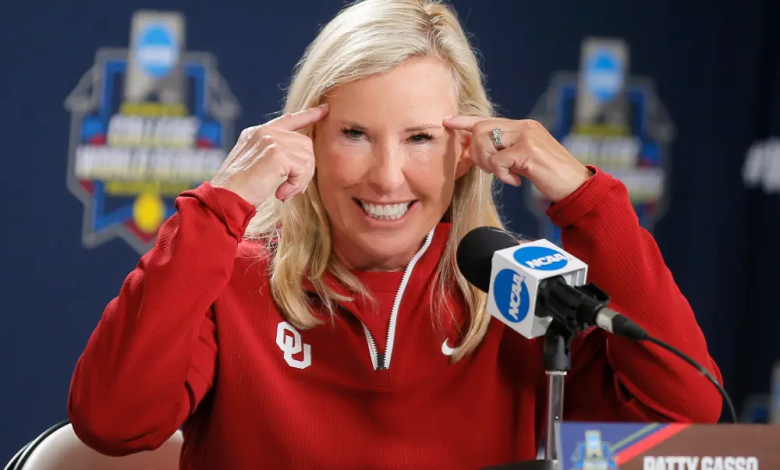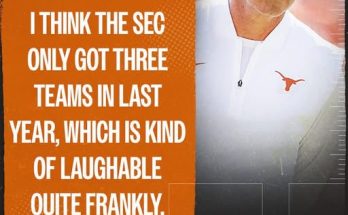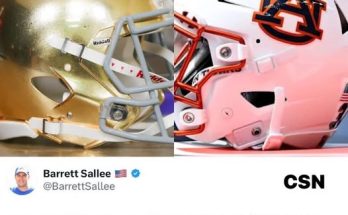In early 2025, the University of Oklahoma’s softball team, under the leadership of head coach Patty Gasso, made a strategic decision to forgo participation in the Mary Nutter Collegiate Classic, a prominent tournament held annually in Palm Springs, California. Instead, the Sooners opted for a distinctive Southern California road trip, aiming to support mid-major programs and foster community engagement.
The Mary Nutter Collegiate Classic: A Brief Overview
The Mary Nutter Collegiate Classic is a renowned softball tournament that attracts top collegiate teams from across the nation. Held at Big League Dreams in Cathedral City, California, the event has become a staple in the softball community, offering teams a platform to showcase their talent and compete against elite opponents. Historically, the Sooners have participated in this tournament, using it as a benchmark to assess their early-season performance.
Patty Gasso’s Vision for 2025
In 2025, Coach Gasso envisioned a different approach to the team’s early-season schedule. She recognized the evolving landscape of college athletics, particularly the financial challenges faced by mid-major programs. With the advent of name, image, and likeness (NIL) rights and the increasing financial disparities among programs, Gasso sought to implement a strategy that would directly benefit these institutions.
Supporting Mid-Major Programs
Instead of participating in the Mary Nutter Classic, the Sooners planned a series of games against mid-major programs at their home venues. This initiative aimed to boost attendance and generate revenue for these schools, which often operate on tighter budgets compared to their Power Five counterparts. By bringing a high-profile team like Oklahoma to their campuses, these programs could attract larger crowds, thereby increasing ticket sales and overall revenue.
The Southern California Road Trip
The Sooners’ Southern California road trip was meticulously planned to maximize impact. The schedule included matchups against:
- San Diego State University
- California State University, Fullerton
- Loyola Marymount University
- California State University, Long Beach
Coach Gasso emphasized the importance of these games, stating, “It’s more of a, it’s good competition, but it’s really trying to make the mid-majors some money because they’re gonna get lost in this transition and I really wanna help them however I can for our team and our program wants to help that.”
Financial Implications and NIL Considerations
The decision to forgo the Mary Nutter Classic was influenced by the financial dynamics of college athletics. Tournaments like the Mary Nutter Classic generate significant revenue, but much of this income benefits the organizers rather than the participating schools. By scheduling games directly with mid-major programs, the Sooners ensured that the revenue from ticket sales and attendance would directly support these institutions. This approach aligns with the broader trend of colleges seeking to retain a larger share of the revenue generated by their athletic programs, especially in light of NIL rights and the financial challenges faced by smaller programs.
Community Engagement and Impact
Beyond financial considerations, the road trip served as a platform for community engagement. By playing at the home venues of these mid-major programs, the Sooners helped elevate the profile of these schools within their local communities. This exposure can lead to increased support from local fans, potential recruits, and alumni, fostering a stronger sense of community and support for these programs.
Oklahoma’s 2025 Season: A Blend of Tradition and Innovation
While the decision to forgo the Mary Nutter Classic marked a departure from tradition, it was part of a broader strategy to balance competitive excellence with social responsibility. The Sooners’ 2025 season schedule reflects this balance, featuring a mix of traditional matchups and innovative approaches to supporting the broader softball community.
Expanding the Vision: Broader Impact on Softball and College Athletics
Patty Gasso’s decision to deviate from a tradition like the Mary Nutter Collegiate Classic signifies a larger trend in the way college athletics are evolving. The financial constraints on mid-major programs have become more pronounced, and top-tier programs, like Oklahoma’s, are beginning to consider how they can use their influence for good beyond just winning championships.
In recent years, college athletics has seen major shifts due to NIL, the transfer portal, and an increased focus on the financial aspects of running a successful program. As revenue from broadcasting deals and large-scale sponsorships has surged for Power Five schools, the gap between these schools and mid-major programs has grown wider. While programs like Oklahoma have the resources to participate in high-profile tournaments like the Mary Nutter Classic, smaller programs are left fighting for exposure and revenue to sustain their operations.
Coach Gasso’s choice to step back from such a prestigious tournament in favor of a more altruistic approach represents a forward-thinking model that prioritizes the greater good of the sport as a whole. Rather than just competing for trophies or rankings, Oklahoma’s strategy, led by Gasso, was a deliberate attempt to invest in the long-term health of college softball.
A Strategic Approach to Team Development and Early Season Preparation
While the Oklahoma Sooners’ decision to skip the Mary Nutter Classic was largely motivated by a desire to support mid-major schools, it also had a strategic angle regarding early-season preparation. The Mary Nutter Collegiate Classic is often seen as an early barometer for teams looking to test themselves against top-tier competition. However, Gasso’s choice to schedule road games against mid-major programs in Southern California allowed her team to face strong, competitive teams in a less high-pressure setting.
This gives the Sooners an opportunity to refine their strategies and tactics without the added stress of a crowded and intense tournament setting. With a roster that consistently competes at the top of the NCAA rankings, Gasso understands the value of balancing competition with community engagement. The Southern California swing not only provides quality matchups but also offers her team a chance to be more in tune with the broader softball community. These games offer less fanfare but can foster a deeper connection between players and coaches with the communities they are playing for.
Supporting the Growth of Women’s Sports
One of the underlying motivations behind the Sooners’ 2025 road trip was to aid in the larger effort of growing women’s sports at the collegiate level. While the Mary Nutter Classic is a celebrated event, it is not without its drawbacks in terms of resource distribution. The revenue generated by such events largely stays within the confines of the tournament organizers, with a relatively small percentage reaching the participating schools themselves.
By playing games against mid-major teams, the Sooners are directly investing in the future of women’s sports at these schools. By increasing attendance and visibility for these teams, Oklahoma is helping to ensure that the smaller programs have the financial resources they need to continue their operations and foster new talent. This approach also sets a precedent for other Power Five schools to consider how they can contribute to the sustainability of smaller programs.
Patty Gasso: A Leader Beyond the Field
Patty Gasso’s leadership in this instance shows her commitment to not only the success of her own program but to the growth and sustainability of college softball as a whole. Her forward-thinking approach to scheduling, player development, and community outreach speaks to a broader understanding of her role in the athletic landscape. She understands that as one of the most successful and recognizable figures in the sport, her actions carry weight.
Her willingness to leverage Oklahoma’s prominence for the benefit of mid-majors is a testament to her belief that success should not only be measured by championships but also by the broader impact one can have on the community. By making decisions that balance competition with responsibility, she is helping to build a more equitable environment for the sport she loves.
The Bigger Picture: How Oklahoma’s Decision Could Spark Change
Oklahoma’s decision to skip the Mary Nutter Classic and support mid-major programs could serve as a model for other top programs in collegiate sports. If other high-profile programs follow suit and support smaller schools by scheduling more games with them or finding other ways to assist with their financial struggles, the overall landscape of college athletics could change in significant ways. Smaller programs would have the resources to stay competitive, continue nurturing young talent, and perhaps even rise in prominence over time.
This could lead to a greater sense of parity in college athletics and provide a pathway for underfunded programs to improve both athletically and financially. While large programs like Oklahoma will always have an advantage in terms of resources and recognition, this shift towards supporting mid-majors could help reduce the financial disparities between the “haves” and the “have-nots” in college sports.
Looking Ahead: Long-Term Impact on the Softball Community
The long-term impact of Gasso’s decision will likely resonate beyond the 2025 season. By embracing this approach, Oklahoma may inspire other athletic programs to rethink how they approach early-season competition and their role within the broader athletic ecosystem. As the conversation surrounding NIL, student-athlete compensation, and financial fairness continues to evolve, it is likely that many more schools will begin to consider how they can use their resources and influence to help those with fewer opportunities.
In the years to come, it will be interesting to see if this kind of scheduling becomes a more common practice. As other athletic programs recognize the power they have to create positive change, this trend could shift the way college athletics operates. For now, Coach Gasso’s innovative decision sets a powerful example of how one program can use its platform for good, elevating the entire softball community and fostering a more sustainable future for all.



